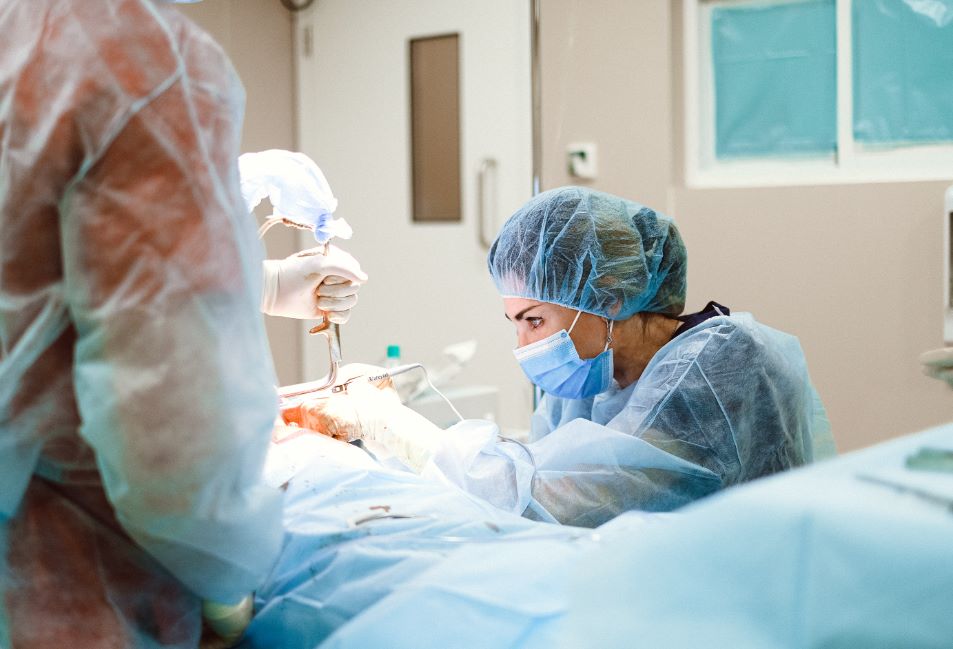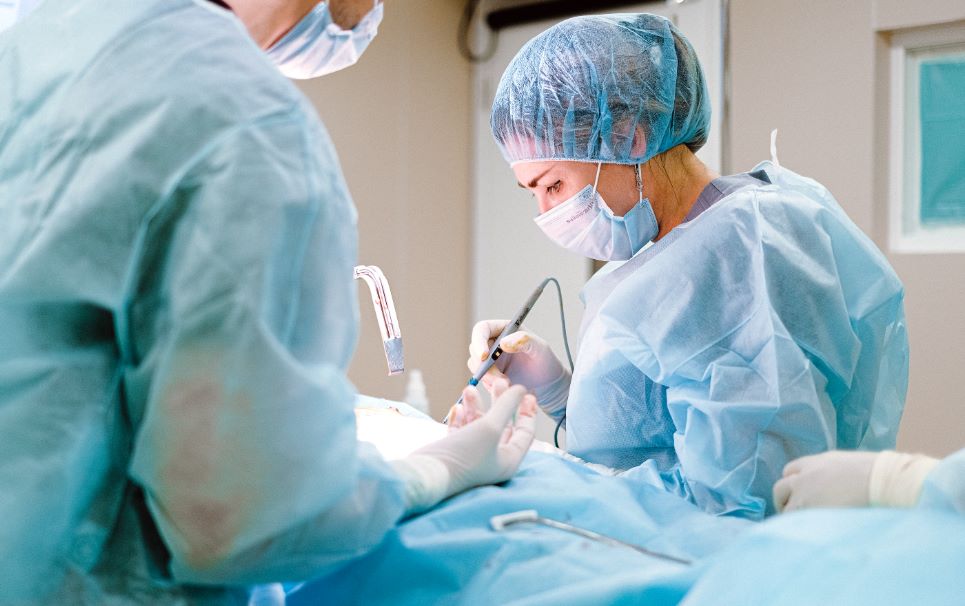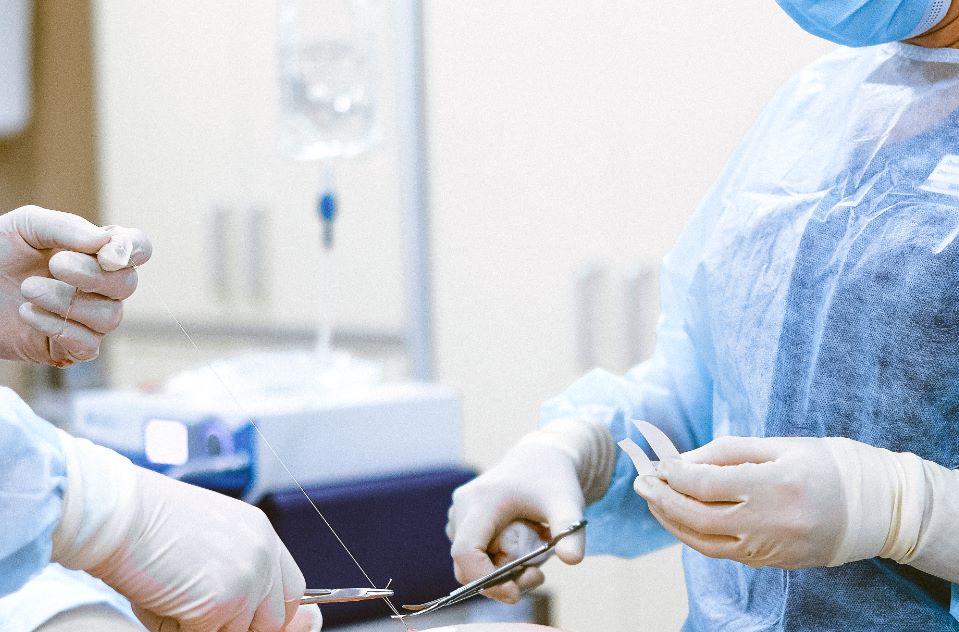Surgery intended to alter or improve the appearance of a patient is collectively known as plastic surgery. While most people equate the word with purely aesthetic procedures, plastic surgery actually encompasses a wide variety of medically necessary procedures as well.
Whatever the case may be, weighing the risks and advantages of surgery thoroughly before committing to the procedure is essential. In this piece, we'll take a look at the benefits and risks of getting plastic surgery.
Understanding the Risks and Benefits of Plastic Surgery
When contemplating cosmetic surgery, it's important to weigh the potential benefits against any potential drawbacks. Never take the option of cosmetic surgery lightly. For this reason, we have briefly covered the potential hazards and benefits of plastic surgery.
Benefits of Plastic Surgery
The advantages of Plastic Surgery have been recognised and appreciated by the public with time. When people in more traditional societies wanted to improve their looks and shed the shame of being flawed, they turned to the once-forbidden issue of plastic surgery.
Did you know, though, that plastic surgery encompasses much more? Here are several perks of plastic surgery that you probably weren't aware of.
Enhancement of One's Appearance and Health
Cosmetic surgery positively impacts more than just one's outward looks. Rhinoplasty, commonly known as nose reshaping surgery, can help with breathing problems by altering the nose's structure. The same is true with breast reduction surgery, which can transform your figure while reducing discomfort caused by overly large breasts.
Improved Sense of Identity
When you look nice, you feel fantastic. As a general rule, when people take care of their looks, they feel better about themselves, are more likely to try new things and be more outgoing in social situations. If you were too self-conscious to go out in public or participate in certain activities before surgery, you may now feel confident enough to do so.
Better Emotional Health
The psychological benefits of Plastic Surgery are substantial due to its positive effect on self-esteem. It helps people feel better about themselves, which has a multiplicatively positive effect on their mental and emotional well-being.
Motivation to Live Healthier
If cosmetic surgery gives you self-assurance, you could try to better your life in other ways. In general, patients aim to keep or enhance their current appearance by adopting a healthier lifestyle. They should change their eating habits and begin an exercise routine.
The Pain in Your Back, Neck, and Shoulders Will Disappear
Pain in the back, neck, and shoulders is a typical complaint among women with tiny frames and enormous breasts. Plastic surgery not only improves your posture but also provides rapid relief from these aches and pains.
Can Maintain Their Ideal Body Weight
Losing weight after plastic surgery is possible. It stresses the importance of regular checkups and preventative medicine. Those who manage to keep their weight in the healthy range reduce their chances of having numerous health problems.
Protects Against Diabetes
Those who are overweight are more likely to get diabetes. Fatty acids included in fats hinder insulin's breakdown in the body. When combined with a regular exercise and healthy diet, the excess fat lost in procedures like liposuction and breast reduction can help lower the risk of diabetes.
Enhanced Capacity for Inhalation and Exhalation
The cosmetic surgery known as rhinoplasty (or a "nose job") can actually increase airflow to the brain. Rhinoplasty patients frequently note an immediate enhancement in airflow.
Better Sight
Some people's eyelids droop as they get older; this is a common side effect of ageing. Sagging eyelids significantly degrade visual acuity. The immediate solution to this issue is a blepharoplasty, in which extra skin is removed from the eyelids. Dry eyes are another condition that blepharoplasty can help with.
Plastic surgery can have far-reaching effects on a person's physical, mental, and emotional health, regardless of whether it is sought for cosmetic reasons or to fix an unanticipated problem.
More Career Opportunities
Enhancing one's physical appearance might increase one's employment opportunities in fields where attractiveness is valued, such as the media and the service industry.
Risks Involved with Cosmetic Surgery
There is always a chance something wrong will happen during surgery, and plastic surgery is no exception.
Mental Health Issues
If you want to comprehend the mental facets of cosmetic surgery, you'll need to answer a few questions about yourself. How would you feel, for instance, if your plastic surgery made you the topic of conversation among your friends and acquaintances?
What if your significant other becomes insecure or jealous of your new look? What if, despite having your "problem" surgically corrected, you still feel "bad-looking" or "inadequate"?
Plastic surgery's potential psychological and social effects are strongly influenced by the patient's expectations and state of mind before the procedure. On the other hand, you must accept the fact that no "perfect" appearance exists.
Let's pretend you're feeling guilty about your appearance. People with body dysmorphic disorder (BDD) are chronically dissatisfied with their physical appearance.
Infection
It's one of the most common problems after surgery. Cellulitis is a risk for the 2-4% of women who undergo breast surgery. Some infections are more severe and must be treated intravenously with antibiotics.
Problems with the Anaesthesia
Anaesthesia is used so the patient does not feel any pain during the procedure. Consequences such as strokes, heart attacks, lung infections, and mortality have been linked to the general anaesthesia used to keep patients asleep during surgery.
Confusion, dizziness, and shivering are anaesthesia's most typical adverse reactions. Rarely do patients awaken from anaesthesia or become aware during surgery.
Bleeding
Due to the inherent danger of cutting into living tissue during surgery, blood loss is always a possibility. However, low blood pressure caused by irregular bleeding might be dangerous. Internal bleeding is uncommon but can occur after surgery.
Permanent Injury to Nerves and Internal Organs
Nerve damage is a significant risk associated with cosmetic procedures. Nerve damage can cause various uncomfortable sensations, from numbness and tingling to muscle weakness and paralysis.
Any procedure involving plastic surgery has the risk of nerve damage. Within six months to a year, most nerve damage will heal on their own. It may take up to three years for a patient to fully recover.
You may experience symptoms like itching, shooting pains, or electrical shocks as nerve activity is restored.
Liposuction results in many holes that could potentially harm vital organs. If the surgical probe touches the patient's organs during the procedure, punctures may form. These punctures require additional sealing surgery, as not doing so could be fatal.
Analysing the Benefits and Drawbacks
The benefits of cosmetic surgery can vary significantly from patient to patient. Many people who have undergone plastic surgery regret waiting so long to get it done.
While some people are glad they did it, others regret not thinking it through more carefully or choosing a different surgeon. Learning as much as possible about your condition can reduce your risk of complications.
Consider factors other than price while making a surgeon selection. Verify experience and references, probe deeply, and watch for warning signs.
Take good care of yourself before surgery to ensure the greatest possible outcome, and don't let your eagerness to get the procedure override more pressing health concerns.
While the potential for harm from plastic surgery varies by technique, several threats are universal across all operations. It's up to you alone to determine if it's worth it. Gain knowledge. Think about the benefits and drawbacks. Discuss it with the people you care about.
If you do decide to have surgery, make sure you choose the best surgeon possible. Be sure to adhere to all pre- and post-surgery instructions carefully. If so, bask in your remodelled guise.
How to Get Ready for Plastic Surgery
If you're considering getting plastic surgery, it's important to know what to expect on the day of the procedure. The following measures can be taken to reduce harm and increase gain:
Find a Trustworthy Surgeon
It is critical to find a board-certified plastic surgeon with extensive experience. You can make a well-informed decision if you look into their background, see before-and-after pictures, and read feedback from previous clients.
Adopt and Stick to a Healthful Eating Plan
For your body to recuperate properly, you should not go on a low-calorie or empty-calorie diet. Use high-quality items like fresh veggies and lean proteins instead of reducing calorie intake.
Stay away from the fast food and booze. The blood-thinning effects of alcohol, even in tiny amounts, are dangerous during surgery because they increase the risk of bleeding and bruising.
Until about two weeks before surgery, it's ideal to drink alcohol moderately; between two weeks before surgery and surgery itself, it's preferable to abstain from alcohol completely; and for a week or two after surgery, alcohol use should be limited.
Drop the Smoking Habit
Tobacco use reduces blood oxygen levels and impairs blood vessel function. Healing requires a sufficient supply of oxygenated blood and unblocked blood vessels. Don't try to keep your tobacco use a secret from your doctor; be honest about whether you smoke cigarettes, cigars, pipes, or e-cigarettes.
We advise talking to your healthcare physician about your choices for stopping entirely before surgery.
You should give up nicotine patches, gum, and other substitutes. It is recommended that you make a scheduled visit with your doctor's office if you believe you cannot quit smoking on your own.
Exercise
It is not advised to start or increase the intensity of an exercise routine before cosmetic surgery. Instead, keep up with your fitness level and avoid any activities that could cause harm. Before having a stomach tuck or other abdominal treatment, you should focus on stretching and strengthening your core (back and abdominal) muscles.
Patients usually refrain from physical activity for a few weeks after undergoing elective cosmetic surgery. After a calculated period, they are eased back into an exercise regimen, usually beginning with low-impact cardio exercises and working up to more strenuous ones.
Get Your Post-Op Essentials in Order
Passive pursuits are perfect for while you're resting and recovering. Get plenty of reading material and entertainment options, and rest before your operation. Don't pick comedies if you don't want to burst out laughing. When recovering from breast or abdominal surgery, a soft pillow placed over the surgical site helps reduce discomfort caused by laughing, coughing, or sneezing.
There will be restrictions on your ability to leave the house and use the stairs for the first several days. You may be unable to bend or lift as much after specific treatments.
Before your surgery, You should fill your prescriptions and stock up on nonperishable snacks, moisturising wipes for your skin, loose-fitting clothes, ice packs, and traction socks.
Imagine recovering from an illness or injury, and no one can help you. In that scenario, you can move things from high shelves or the floor to a more convenient level in the kitchen, bathroom, and other rooms.
Always Do As Told Before and After Surgery
Both before and after surgery, your surgeon will give you detailed instructions. If you follow these instructions, you'll have a much lower chance of experiencing difficulties and a quicker recovery.
Accept Appropriate Follow-Up Care
Care following surgery is essential. Keep all of your post-op appointments and get in touch with your surgeon if you have any issues.
Conclusion
Plastic surgery is a type of reconstructive or cosmetic surgery that tries to enhance or correct a patient's physical attributes. Included in this category are operations required for health reasons, such as breast reduction, blepharoplasty, and rhinoplasty. One's feeling of self, confidence, and desire to maintain a healthy lifestyle can all benefit from these interventions.
Plastic surgery can help people in many ways, from improving their looks to lowering their risk of diabetes to increasing oxygen flow to the brain. In addition to removing excess skin from the eyelids and dry eyes, rhinoplasty can be used to enhance one's vision through cosmetic surgery.
However, there are also hazards associated with cosmetic surgery, including the possibility of mental health complications. No "perfect" appearance exists, therefore patients must think about their expectations and mental state before committing to the operation.
Negative self-perception is a common symptom of body dysmorphic disorder (BDD), which can have serious consequences for sufferers' quality of life. Before agreeing to cosmetic surgery, it is crucial to think about the potential outcomes.
Cellulitis is one of the most prevalent post-surgery infections and consequences. Death, lung infections, heart attacks, and strokes are all possible side effects of anaesthesia. Internal bleeding is unusual but possible if blood loss occurs.
There is a substantial possibility of nerve injury after cosmetic treatments, and full recovery might take up to three years. Liposuction creates dangerous holes, and if the surgical probe comes into contact with an organ during the surgery, it could cause a puncture.
Finding a reliable surgeon, starting a good diet, avoiding fast food and alcohol, and giving up smoking are all important steps to take before undergoing plastic surgery. Maintaining fitness and avoiding harmful exercises is important. Passive activities, rest, and stowing away necessities are all recommended after surgery.
Following pre- and post-operative care guidelines will assist ensure a smoother surgical experience and a more rapid recovery. It is crucial to notify your surgeon if you are experiencing any complications after surgery and to keep all post-op visits. Patients can make better treatment and care decisions when they have a thorough grasp of the potential dangers and rewards of cosmetic surgery.
Content Summary
- Cosmetic surgery can improve or alter a person's look.
- Procedures that are both aesthetically and medically necessary can be included in plastic surgery.
- It is essential, before to surgery, to give careful consideration to both the potential downsides and potential upsides.
- The advantages of plastic surgery extend far beyond the realm of cosmetics.
- In order to treat respiratory problems, procedures such as rhinoplasty may be performed.
- Breast reduction surgery alleviates discomfort and results in a more pleasing appearance.
- Improving one's outward look might boost one's confidence levels.
- An increase in one's self-confidence is directly correlated to an increase in one's outgoing behaviour.
- Plastic surgery has a therapeutic effect on an individual's mental health.
- Patients who have surgery are more likely to pursue better lifestyles.
- It is possible to get relief from pain in the back, neck, and shoulders.
- A healthy weight can be maintained more easily with the help of plastic surgery.
- Surgery has been shown to lower the chance of developing diabetes.
- Rhinoplasty enhances both the patient's ability to breathe in and breathe out.
- Vision can be improved with blepharoplasty.
- A person's physical, mental, and emotional health can all be impacted by plastic surgery.
- A more presentable appearance could open doors to new work options.
- There is always the chance of complications following plastic surgery.
- Considerations pertaining to one's mental health are very essential.
- The psychological consequences of treatment are influenced by the patient's expectations.
- Dissatisfaction is a potential outcome of body dysmorphic disorder.
- After surgery, patients frequently struggle with the onset of infections.
- There is always a risk involved with anaesthesia.
- Because tissues will be cut, there is a possibility of bleeding.
- There is a considerable possibility of nerve injury.
- The signs of nerve injury can take several forms.
- There is a risk of organ damage with liposuction.
- It is essential to strike a balance between the advantages and disadvantages.
- The patients' varying levels of satisfaction and regret are to be expected.
- Results can be affected by both research and the choice of surgeon.
- Care given prior to surgery has an impact on the outcomes.
- A healing strategy that includes healthy diet is helpful.
- Both drinking alcohol and smoking cigarettes are detrimental to surgical outcomes.
- Prior to surgery, considerations regarding exercise.
- Essential items for a speedy and comfortable recovery after surgery.
- Always make sure to follow the directions given by the surgeon before and after surgery.
- After surgery care is absolutely necessary for a full recovery.
- It is absolutely necessary to locate a surgeon who can be trusted and who has experience.
- A healing strategy that includes healthy diet is helpful.
- Quitting smoking accelerates the healing process.
Frequently Asked Questions
Plastic surgery can offer various benefits beyond appearance, including improved physical health. Procedures like rhinoplasty can help with breathing issues, and breast reduction surgery can alleviate discomfort from large breasts. Additionally, enhanced self-esteem and emotional well-being are often reported benefits.
Mental health plays a crucial role in the outcome of plastic surgery. Patients should evaluate their expectations and understand that surgery may not lead to a "perfect" appearance. Body dysmorphic disorder (BDD) can also influence patient satisfaction and should be addressed before considering surgery.
Plastic surgery, like any surgical procedure, carries potential risks. These risks include infections, anesthesia-related issues, bleeding, nerve damage, and even damage to internal organs. It's important to thoroughly discuss these risks with your surgeon before deciding.
Choosing a reputable and experienced board-certified plastic surgeon is paramount. Research their background, read client reviews, and look at before-and-after photos. Following pre- and post-surgery instructions carefully, maintaining a healthy lifestyle, quitting smoking, and avoiding alcohol before surgery can also contribute to a smoother recovery and reduced risks.
Regret is a possibility with any medical procedure. To minimise the chances of regret, it's crucial to research the procedure thoroughly, set realistic expectations, and communicate openly with your surgeon about your goals. Remember that results can take time to manifest fully, and if regret persists, seeking counselling or support from mental health professionals may be helpful.


